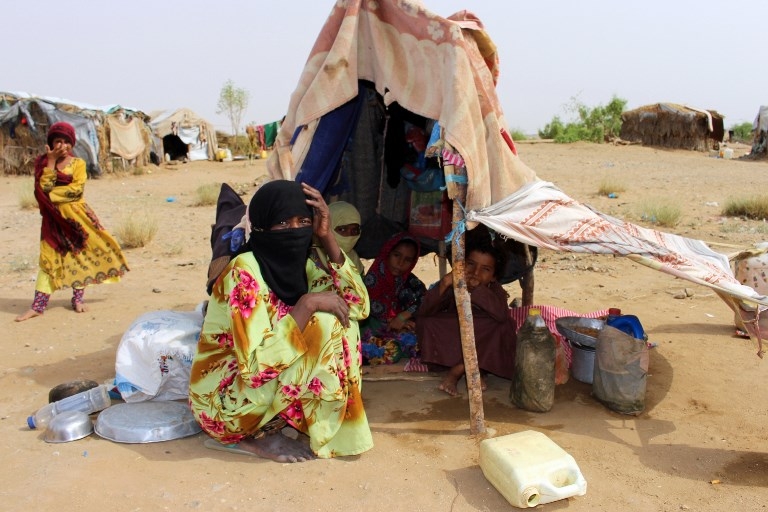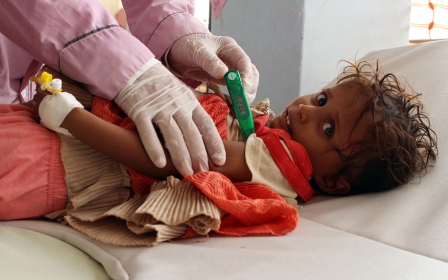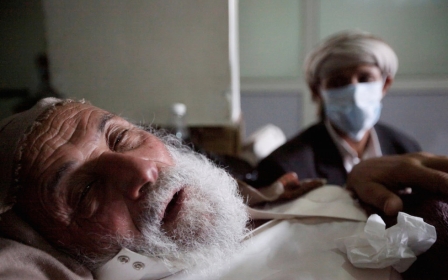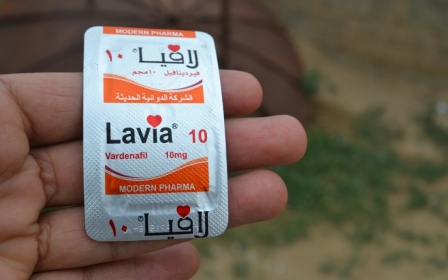Yemenis forced to choose between treating cholera and eating, says NGO

Yemenis are being forced to choose between treating cholera and putting food on the table, a new report from Oxfam says, feeding an almost inescapable cycle of poor health and poverty.
There have been half a million suspected cholera cases in Yemen this year, the World Health Organisation reported earlier this week, with the country currently experiencing the biggest cholera epidemic in the world.
In its new report, Yemen: Catastrophic Cholera Crisis, Oxfam details the effects of such an outbreak, with many Yemenis having to choose between treating the effects of cholera – which can be fatal if not treated quickly – or providing for their families.
Due to a collapsed economy, and with millions of public sector employees not receiving salaries for months now, people are often forced to sell personal belongings to treat cholera, or going into debt just to eat.
Mohammed Ahmed, a farmer from Sadah, said he had to sell his family heirlooms, and his wife's jewellery, as well as relying on goodwill donations from others, just to take his mother to hospital.
I have no more money for my mother's next visit, and I don't know where I am going to get it from, I have sold everything I own
- Ahmed, farmer
"I have no more money for my mother's next visit, and I don't know where I am going to get it from, I have sold everything I own," Ahmed, 33 years old, said.
The report notes a correlation between food insecurity and high rates of cholera, with regions such as Hajjah, Hodeida and al-Dujaydah being struck with disproportionate levels of the disease.
Other factors such as the current rainy season and contaminated water sources are also linked to the spread of the infectious disease, which is normally easily treatable.
Two-thirds of Yemenis reportedly do not have access to clean water, the report says.
The disease is predicted to spread further, amid the ongoing Saudi-led war against the country, which has already claimed 10,000 lives.
Many Yemenis are also suffering from meningitis, diarrhoea, malnutrition and respiratory tract infections, the report says, in a healthcare crisis further exacerbated by a lack of medical care.
Yemen's healthcare sector has deteriorated due to the conflict, with less than half of healthcare facilities fully functioning, while as many as 30,000 medical staff are either insufficiently paid, or not paid at all.
A doctor in one of Sanaa's main hospitals claims that a lack of awareness and resources makes cholera harder to treat:
"The elderly are unaware of the symptoms. They are seeking medical attention far too late, sometimes too late to be saved," the doctor said.
"Cholera can take hold within two hours. Rural communities need the most support. They do not have the money or fuel for transport to seek treatment. But where should they go?"
Oxfam said that the UK and the US were complicit in Yemen's humanitarian crisis, and called for an urgent halt to the fighting.
Shane Stevenson, spokesperson for Oxfam, called on international parties to come around the table, to put an end to what they termed a "man-made crisis".
Stevenson said: "It is now or never the time to bring back parties to the negotiations table and to fully fund the humanitarian response. Waiting any longer will lead to more death and devastation of which the world will be shamefully complicit."
Katy Wright, the head of advocacy at Oxfam, also called on stronger action from the international community:.
"Yemen's catastrophic cholera crisis is rewriting the miserable history of this disease. Our common humanity tells us that this massive crisis demands a massive response."
"In backing this war with billions of dollars of arms sales and military support the US and the UK are complicit in the suffering of millions of people in Yemen."
Middle East Eye propose une couverture et une analyse indépendantes et incomparables du Moyen-Orient, de l’Afrique du Nord et d’autres régions du monde. Pour en savoir plus sur la reprise de ce contenu et les frais qui s’appliquent, veuillez remplir ce formulaire [en anglais]. Pour en savoir plus sur MEE, cliquez ici [en anglais].




